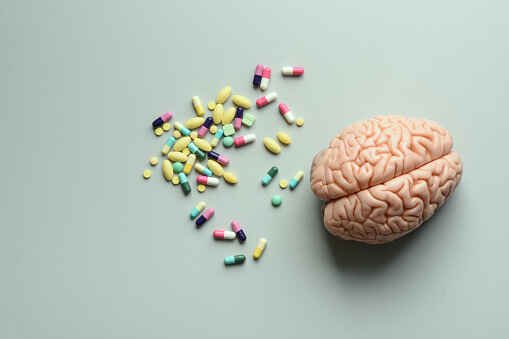These Nutrients Might Stop You From Losing Your Mind
8 years ago | Nutrition
By Joy Stephenson-Laws, JD, Founder
Reportedly, there are around 3.5 million people in the United States diagnosed with schizophrenia. It is one of the leading causes of disability. The Centers for Disease Control and Prevention (CDC) reports that people with schizophrenia pose a high risk for suicide. Approximately one-third will attempt suicide and, eventually, about 1 out of 10 will take their own lives.
What is very troubling about this psychiatric disorder is that it often affects young adults and can be difficult to diagnose. The famous artist, Vincent Van Gogh suffered from schizophrenia. He committed suicide at the age of 37.
The National Institutes of Health (NIH) defines schizophrenia as a “chronic and severe mental disorder that affects how a person thinks, feels, and behaves. People with schizophrenia may seem like they have lost touch with reality.” Some symptoms of schizophrenia may include hallucinations, delusions, agitated body movements, unusual or dysfunctional ways of thinking, reduced speaking and difficulty focusing.
And while many of us might be aware that good nutrition helps us feel and look good, we sometimes forget the impact nutrients can have on the health of our brains.
“Vitamins and minerals are involved in one or more biochemical pathways and/or physiological actions which influence the function of the human brain,” according to a report from AP J Psychological Medicine 2012. “Vitamin deficiencies leading to oxidative damage, methylation deficits, affecting brain developmental mechanisms and neuro-degeneration may explain well some of the symptoms seen in schizophrenia.”
A recent study published in the world’s leading schizophrenia research journal, Schizophrenia Bulletin, examined nutritional deficits and their connection to first-episode psychosis (FEP). FEP can sometimes be an early stage of schizophrenia. This is a particularly interesting study, because most other studies have looked at lack of nutrients in the context of long-term schizophrenia as opposed to FEP.
Researchers of the FEP study conducted a search of electronic databases and singled out 28 studies, examining blood levels of 6 vitamins (A, B12, C, D, E and folate) and 10 minerals (calcium, chromium, copper, iron, magnesium, manganese, potassium, selenium, sodium and zinc) across 2,612 individuals. Of these individuals, 1,221 had FEP and 1,391 did not have FEP or any other mental disorders (the latter group served as the control group).
The results of the study revealed that the individuals with FEP had significantly low blood levels of folate and vitamin D, compared to the control group.
“Folate deficiencies, even in the general population, are among the most widespread of all nutritional deficiencies globally, and adversely affect intellectual development and mortality risk. Folate also plays an important role in maintaining neuronal integrity and lowering levels of homocysteine—which has been linked to etiology of schizophrenia,” the study says.
The strongest evidence was found for vitamin D deficits, and lower vitamin D levels were found to be associated with more severe symptoms in the FEP individuals.
“Given the prevalence of vitamin D deficiencies in long-term schizophrenia, and the compelling evidence for low vitamin D status during brain development being linked to schizophrenia onset, it is perhaps unsurprising that FEP is associated with lower vitamin D,” according to the study.
“However, the extent of the deficit in FEP samples compared to the general population observed in this meta-analysis is troubling, especially considering that vitamin D levels are often low even among healthy adults, with 20%–40% of young adults in UK population showing insufficiencies.”
Clearly, more in depth studies are necessary to further determine the true impact a lack of nutrients have on the human brain. However, what we do know is that nutrient deficits may put you at a higher risk for a serious psychiatric disorder like schizophrenia.
So how can you be proactive about schizophrenia?
- Eat a healthy diet, rich in antioxidant packed fruits and vegetables.
- Studies like the ones discussed here do not mean you should overload on nutrients and antioxidants. In fact, this can be detrimental. The National Institutes of Health (NIH) suggests that both patients and their providers consider both the risk and benefit of supplements prior to initiating treatment.
- Get a comprehensive nutrient test, at least annually, in order to determine whether you have any nutrient deficiencies and imbalances. After all, how can you increase or decrease specific nutrient intake without knowing what you are deficient in?
- If you do have nutrient deficiencies and imbalances, you may have to tweak your diet, take good quality supplements or even consider the use of liposomal technology.
- Be aware of any medications you are taking (both prescription and over-the-counter), as these may deplete vital nutrients from your body.
Enjoy your healthy life!
The pH professional health care team includes recognized experts from a variety of health care and related disciplines, including physicians, health care attorneys, nutritionists, nurses and certified fitness instructors. To learn more about the pH Health Care Team, click here.







